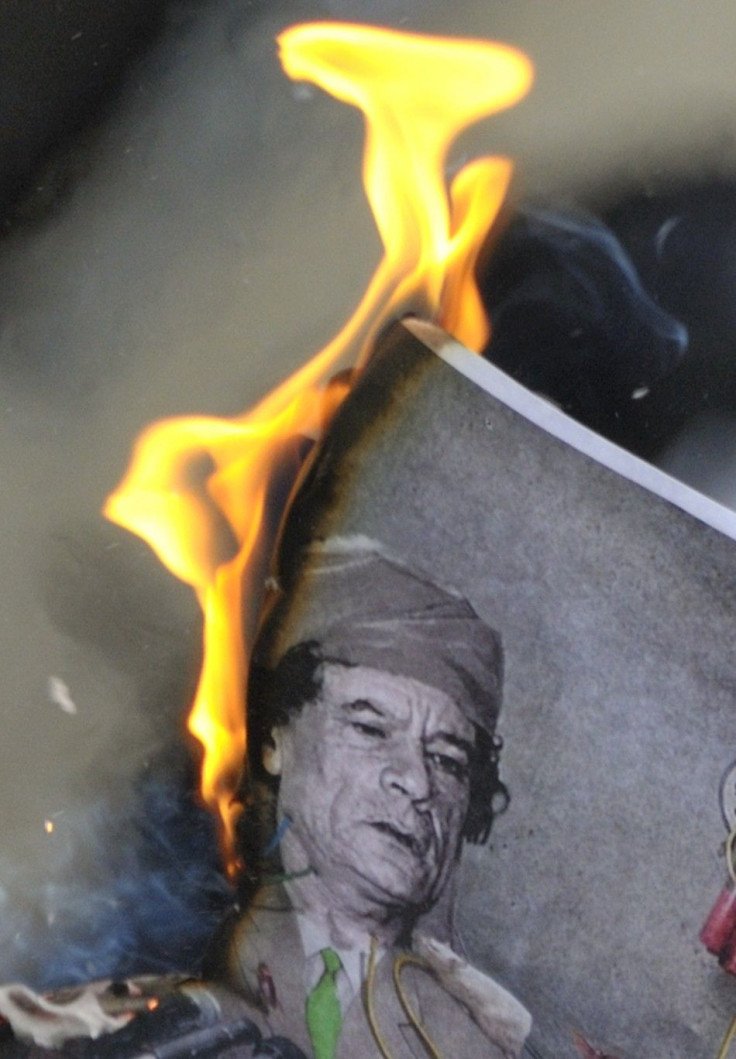UN, NATO meeting on Libya crisis; sanctions, war crime probes considered

Amidst reports of thousands of deaths in Libya as a result of a brutal crackdown against protesters, the United Nations (UN) Human Rights Council is meeting in a special session in Geneva, Switzerland today to discuss possible sanctions against Moammar Gaddafi’s embattled government.
Ironically, Libya is an elected member of the Council, although some members have called for its expulsion.
In brazen and continuing breach of international law, the crackdown in Libya of peaceful demonstrations is escalating alarmingly with reported mass killings, arbitrary arrests, detention and torture of protesters, said Navi Pillay, UN High Commissioner for Human Rights.
Tanks, helicopters and military aircraft have reportedly been used indiscriminately to attack the protesters. According to some sources, thousands may have been killed or injured.
She is urging the international community to step in vigorously to end the crackdown against anti-government protesters in Libya; and pleaded with the Human Rights Council to form a panel to investigate the alleged abuses by Libyan security forces.
Pillay also notified the council that Gaddafi urged his supporters to fight protesters and attack them in their lairs, which she suggested might be a possible crime against humanity.
She said any official, at any level, ordering or carrying out atrocities and attacks can be held criminally accountable.
In New York, the United Nations Security Council will also meet to discuss Libya.
Nigeria's ambassador, Charles Nduka Onianwa, said it is obvious ... that the indiscriminate use of force against peaceful protesters should be condemned.
Pakistan's ambassador, Zamir Akram, said members of the Organization of The Islamic Conference strongly condemn the excessive use of force in Libya.
The UK and France will push for an arms embargo on Libya and a possible investigation of war crimes and other atrocities committed by Gaddafi’s troops and mercenaries.
The violence we have seen is appalling and unacceptable, said British Prime Minister David Cameron. People working for this regime... should remember that international justice has a long reach and a long memory.
The UN’s World Food Programme has warned that Libya's food supply chain is at risk of collapse since imports cannot enter the country and the sporadic violence prohibits food distribution is hampered by violence, according to Agence France Presse.
NATO ambassadors will also convene an emergence session in Brussels to evaluate the Libyan crisis. Secretary general Anders Fogh Rasmussen has said his top priorities are providing Humanitarian assistance and the evacuation of foreign nationals.
Meanwhile, fierce fighting has been reported in western Libya, which still has substantial numbers of pro-Gaddafi troops. An elite brigade led by Gaddafi’s son Khamis is believed to have exerted some measure of control around the capital Tripoli.
The eastern half of the country appears to be firmly in the hands of opposition forces.
© Copyright IBTimes 2024. All rights reserved.





















